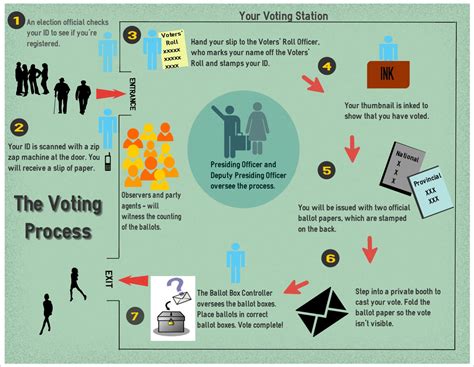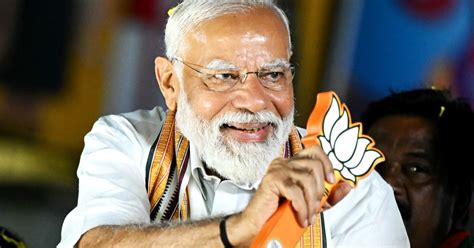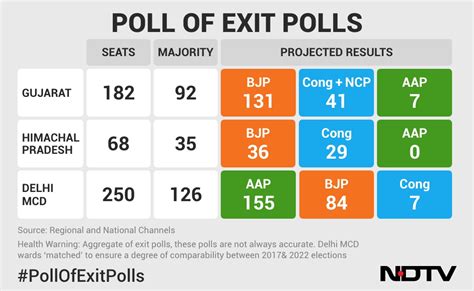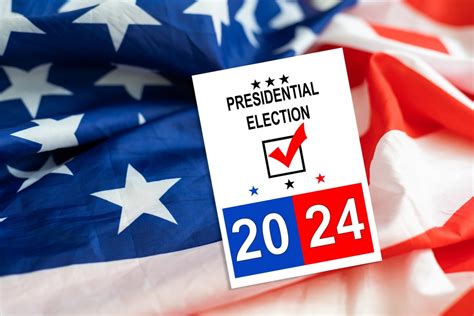Explore the significance of Election Day in promoting civic engagement, strengthening democracy, ensuring fair voting, and understanding its critical role in voter turnout.In a thriving democracy, Election Day stands as a cornerstone of civic engagement and participation. It provides citizens with a crucial opportunity to express their opinions and influence the governance of their communities. From shaping policies to electing leaders, the impact of each vote extends far beyond a single day, reinforcing the democratic values we cherish. This article delves into the multifaceted significance of Election Day, exploring how it galvanizes voter turnout and strengthens our political system. We will also discuss the importance of a fair voting process and the potential consequences of overlooking this pivotal day. Join us as we unravel why Election Day is not just another date on the calendar, but a vital element in ensuring our voices are heard and our rights are upheld.
The Importance Of Election Day For Civic Engagement
Election Day serves as a crucial turning point for civic engagement within the democratic process. It provides a unique opportunity for citizens to actively participate in shaping their governance and influencing policy decisions. The importance of engaging in this process cannot be overstated, as it fosters a sense of community and belonging among voters.
On Election Day, voters not only cast their ballots but also engage in discussions about the issues at stake and the candidates who represent their values and concerns. This exchange of ideas promotes civic knowledge and helps build an informed electorate, which is essential for a healthy democracy.
Moreover, active participation on Election Day encourages individuals to hold elected officials accountable. When citizens make it a priority to vote and express their opinions, they are more likely to advocate for policies that reflect their needs and aspirations. This active engagement enhances public trust in government and reinforces the notion that democracy is a participatory process.
The importance of Election Day extends beyond merely casting votes; it also includes various activities and initiatives aimed at raising awareness about the democratic process. Here’s a brief overview:
| Activity | Description |
|---|---|
| Voter Registration Drives | Encouraging citizens to register and be informed about the voting process. |
| Community Discussions | Open forums for discussing candidates and issues, which fosters civic dialogue. |
| Election Day Events | Local events promoting voter turnout and celebrating democracy. |
The Importance of Election Day lies in its power to mobilize the community, engage citizens, and reinforce the democratic values that underpin governance. By participating in this critical day, individuals contribute to a vibrant democracy where their voices can truly make a difference.
How Election Day Strengthens Democratic Values
Election Day serves as a pivotal point in the democratic process, reinforcing the fundamental principles of democracy. The act of casting a vote is not merely a right but a powerful expression of one’s voice and opinion, accentuating the significance of individual participation. When citizens engage in voting on this day, they are actively contributing to the importance of democratic governance.
One of the core democratic values that Election Day upholds is equality. Each vote carries the same weight, symbolizing that every individual has an equal opportunity to influence the decisions that affect their lives. This collective participation fosters a sense of unity, as diverse populations come together to express their shared hopes and aspirations for the future of their community and country.
Furthermore, Election Day underlines accountability within the political sphere. By voting, citizens hold elected officials responsible for their actions, which promotes transparency and ethical governance. When citizens make an informed decision based on policies and performance, they reinforce the notion that leadership is contingent upon the will of the people. This feedback loop ensures that representatives are continuously aware of their constituents’ needs and concerns.
Additionally, the significance of Election Day transcends mere voting mechanics; it serves as a reminder of the struggles and sacrifices many have made to secure democratic rights. By participating, individuals honor the legacy of those who fought for their freedom, reinforcing the importance of civic duty and the ongoing effort to protect democratic values.
Election Day strengthens democratic values by promoting equality, accountability, and a sense of community. It empowers individuals, fosters unity, and serves as a testament to the enduring significance of active participation in the democratic process.
The Role Of Election Day In Voter Turnout
Election Day plays a crucial role in influencing voter turnout, which is essential for a healthy democracy. It serves as a designated day for citizens to exercise their right to vote, thereby creating a sense of urgency and importance around the electoral process. The strategic timing of Election Day encourages individuals to prioritize participation in democratic processes.
One key factor that enhances voter turnout on Election Day is the collective enthusiasm and motivation generated by the community. When people are aware that their neighbors, friends, and family are also participating, it fosters a stronger sense of civic duty. This communal aspect can significantly amplify public interest and engagement in the elections.
Moreover, The Importance of convenience cannot be overlooked. Many jurisdictions implement measures such as extended voting hours, early voting, and mail-in ballots to ensure that all eligible voters find opportunities to cast their votes. These options help alleviate barriers to access, making it easier for a more diverse electorate to participate, thereby bolstering voter turnout.
Election Day also serves as a powerful reminder of the impact of civic engagement. When citizens recognize that their votes have the potential to shape local, state, and federal policies, they are more likely to engage in the process. The emotional and psychological aspects of voting on a predetermined day reinforce the significance of each individual vote, contributing to a higher turnout.
The structure of Election Day and its surrounding initiatives significantly influence voter turnout. By fostering a culture of participation and accessibility, Election Day reinforces the connection between individuals and the democratic process, highlighting The Importance of each voice in shaping the future of governance.
Understanding The Importance Of Fair Voting Process
The integrity of the electoral process relies heavily on the fairness of voting. The importance of a fair voting process cannot be overstated as it underpins the very foundations of democracy. When elections are conducted fairly, they ensure that every vote counts, fostering public trust in the democratic system.
A fair voting process entails several critical elements:
| Element | Description |
|---|---|
| Transparency | Every step of the voting process should be open to scrutiny to ensure accountability. |
| Accessibility | Voting should be accessible to all eligible voters, regardless of their background or circumstances. |
| Security | Measures must be in place to protect against fraud and manipulation. |
| Equity | All votes should carry equal weight, ensuring that no particular group is marginalized. |
When voters feel confident that the process is fair, they are more likely to participate in elections, leading to higher voter turnout. Conversely, perceived unfairness can lead to disillusionment and apathy, undermining the importance of Election Day as a cornerstone of civic engagement.
Ensuring a fair voting process is not just about following procedures; it is about upholding the democratic principles that govern our society. It is essential for maintaining public trust and promoting active participation among citizens, which is vital for a healthy democracy.
Consequences Of Ignoring The Importance Of Election Day
Ignoring the importance of Election Day can have profound ramifications on the democratic process and civic engagement. Below are some key consequences:
1. Diminished Voter Participation: When citizens do not recognize the significance of Election Day, voter turnout tends to decline. This can lead to an unrepresentative sample of the population making decisions that affect the entire community.
2. Weakening of Democratic Institutions: A low voter turnout can result in less accountability for elected officials. When only a small subset of the electorate participates, those in power may not feel pressured to act in the best interest of all constituents, ultimately undermining democratic structures.
3. Erosion of Public Trust: The perception that elections are inconsequential can foster cynicism among the public. When people believe that their votes do not matter or that Election Day is just another day, the trust in electoral processes erodes, leading to disengagement in civic duties.
4. Influence of Special Interests: A lack of engagement on Election Day can give undue influence to special interest groups. When fewer people participate in the electoral process, these groups can dominate the conversation and steer policies to favor their agendas, often at the expense of the general population.
5. Long-term Political Apathy: Ignoring the importance of Election Day can create a generational cycle of political apathy. Young people who do not see the value of participating in elections may carry those sentiments into adulthood, perpetuating a cycle of disengagement.
| Consequence | Impact |
|---|---|
| Diminished Voter Participation | Unrepresentative electorate |
| Weakening of Democratic Institutions | Less accountability |
| Erosion of Public Trust | Cynicism towards elections |
| Influence of Special Interests | Policy skewed towards few |
| Long-term Political Apathy | Cycling disengagement |
Emphasizing the importance of Election Day is crucial to ensure active participation and the health of democracy. The consequences of overlooking it not only affect immediate electoral outcomes but also shape the future political landscape.
Frequently Asked Questions
Why is Election Day significant in a democracy?
Election Day is significant because it is the culmination of the democratic process, allowing citizens to exercise their right to vote and influence the leadership and policies that govern them.
How does Election Day impact voter turnout?
Election Day can greatly impact voter turnout, as it serves as the final opportunity for citizens to cast their votes, potentially mobilizing those who may have hesitated earlier in the election cycle.
What role does Election Day play in ensuring fair elections?
Election Day plays a critical role in ensuring fair elections by establishing a uniform timeframe for casting votes, along with legal protections and regulations that help safeguard the voting process.
How do different countries celebrate Election Day?
Different countries have unique ways of celebrating Election Day, from public holidays and civic events to educational programs aimed at increasing awareness about the electoral process.
What challenges can arise on Election Day?
Challenges on Election Day can include long lines at polling stations, voter suppression tactics, technical malfunctions with voting machines, and misinformation campaigns that attempt to undermine public confidence in the electoral system.
In what ways can technology influence Election Day?
Technology influences Election Day by providing tools for voter registration, streamlining the voting process, facilitating remote voting options, and enhancing the overall accessibility of the electoral process.
What is the historical significance of Election Day?
The historical significance of Election Day lies in its evolution as a cornerstone of democratic governance, reflecting the struggles for suffrage and the ongoing fight for equitable voting rights across diverse populations.









